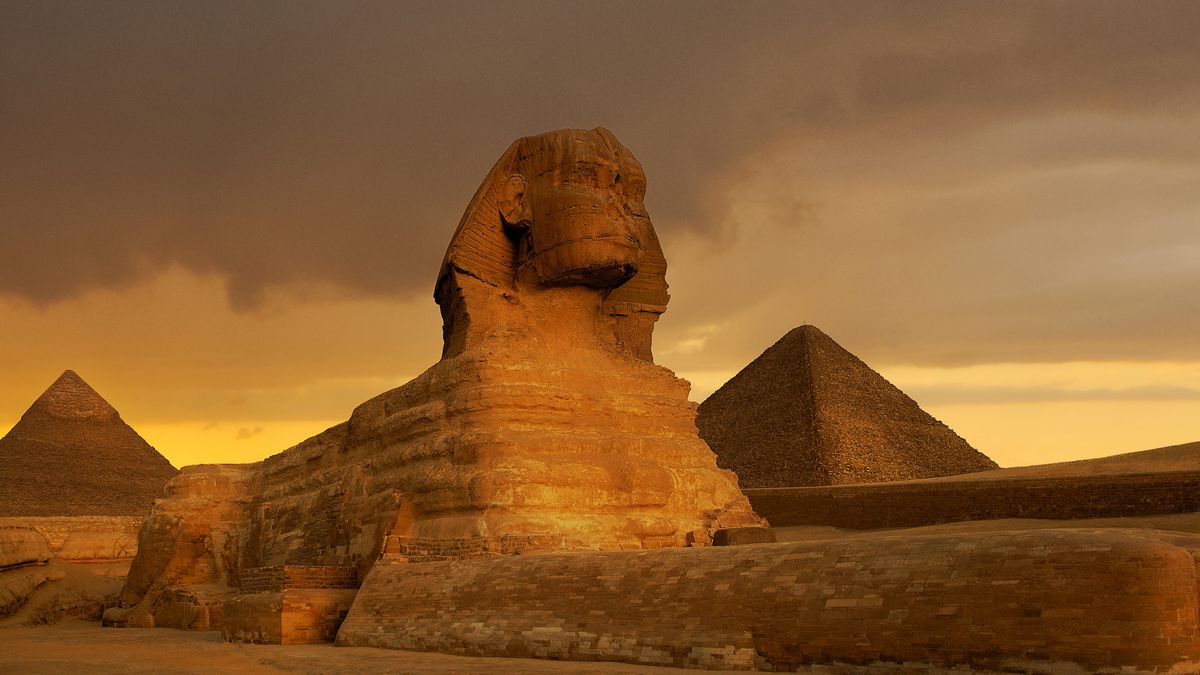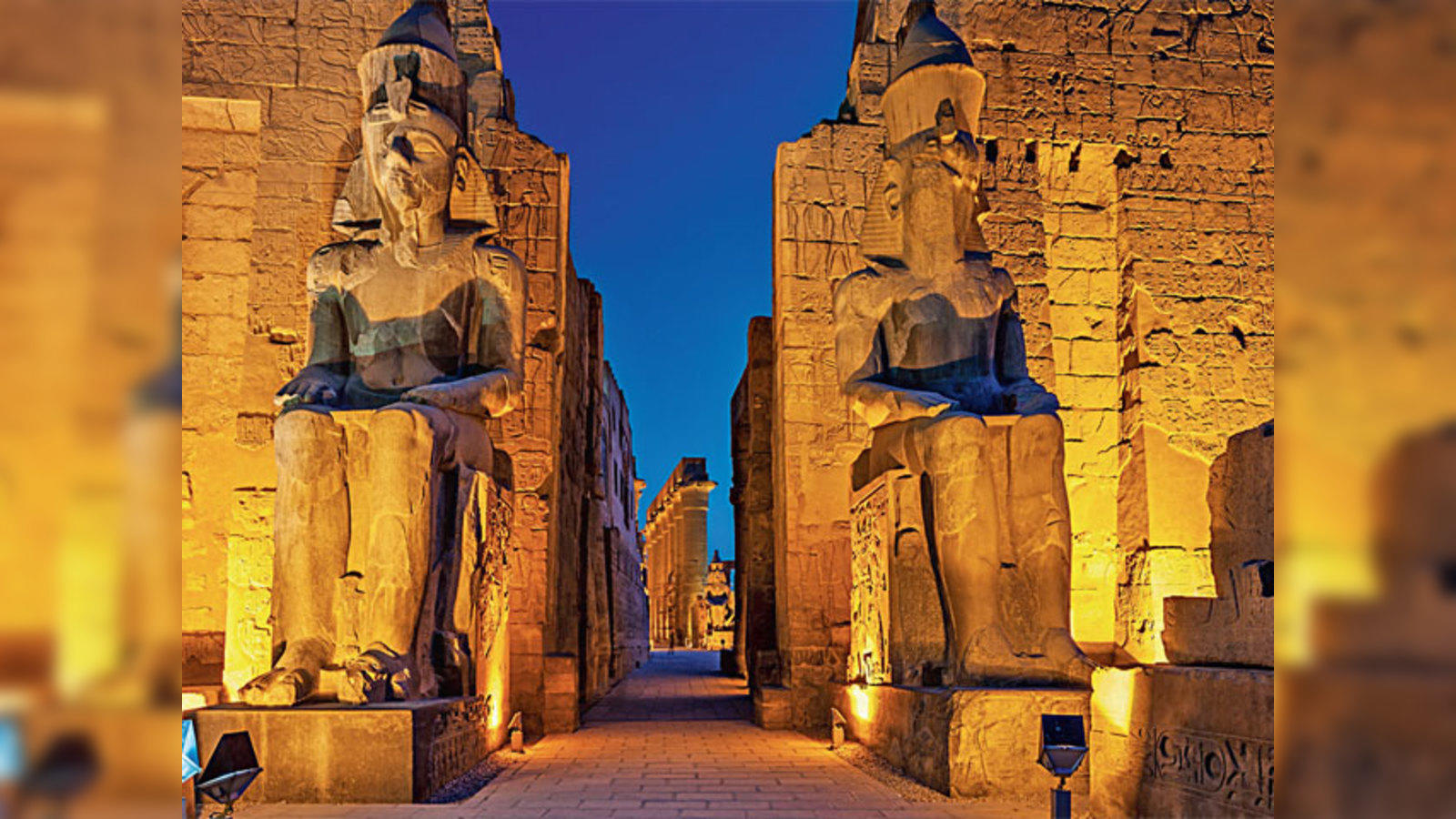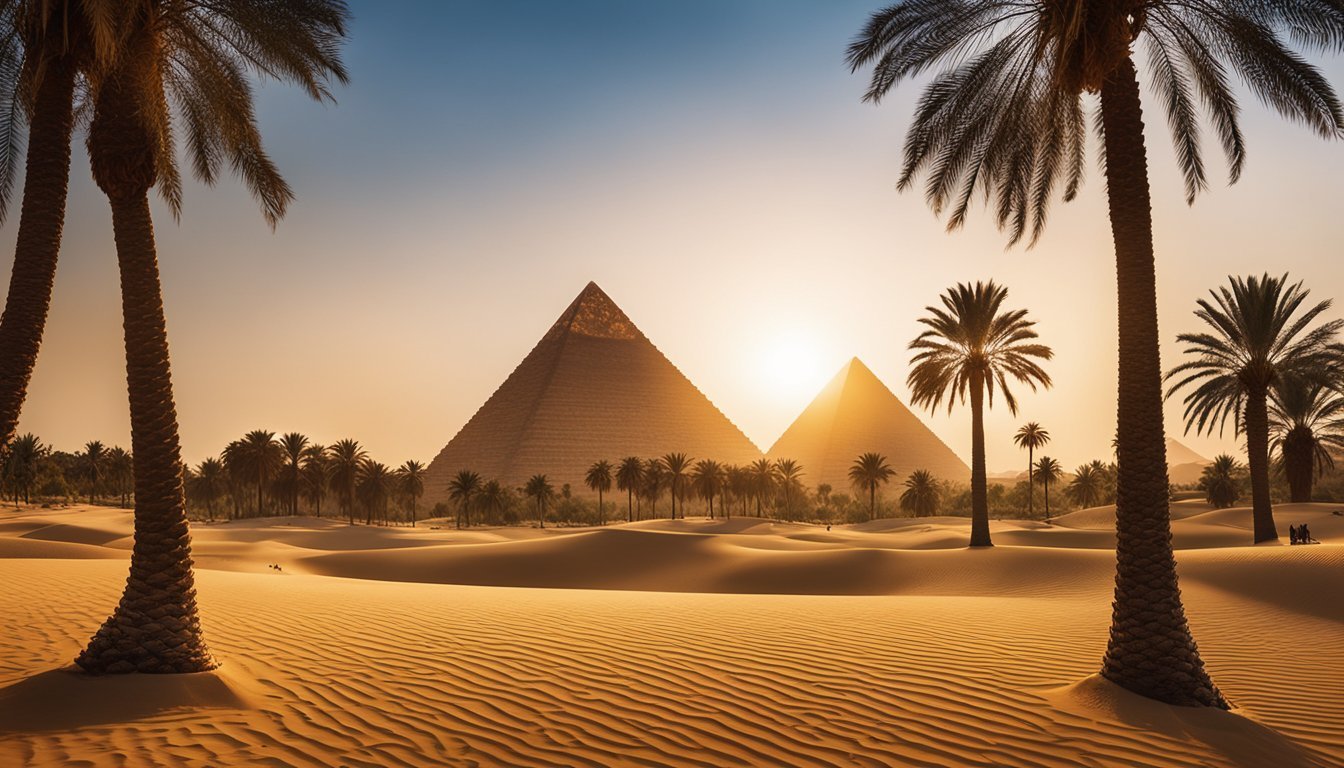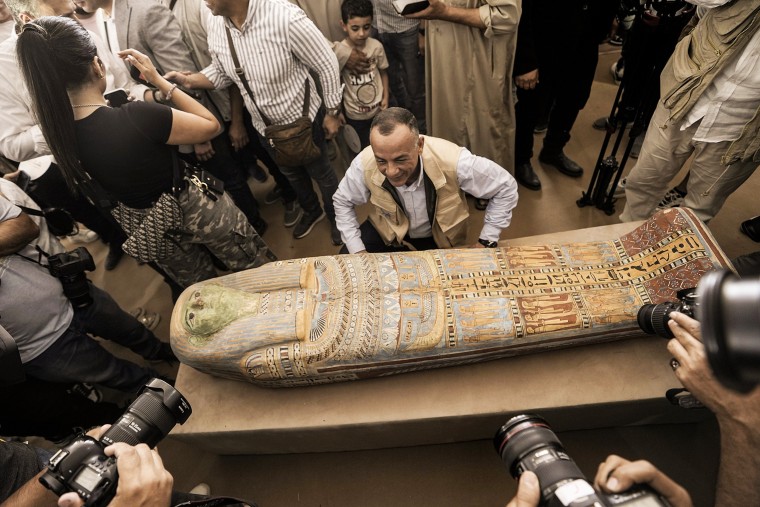Exploring the Rich Tapestry of Ancient Egypt
 Egypt, situated at the northeastern corner of Africa, is a land of ancient wonders, rich history, and cultural diversity. Its civilization has flourished along the fertile banks of the Nile River for millennia, leaving behind a legacy that has captivated the world. In this essay, we will explore the multifaceted tapestry of Egypt, encompassing its ancient origins, modern developments, cultural heritage, and geopolitical significance.
Egypt, situated at the northeastern corner of Africa, is a land of ancient wonders, rich history, and cultural diversity. Its civilization has flourished along the fertile banks of the Nile River for millennia, leaving behind a legacy that has captivated the world. In this essay, we will explore the multifaceted tapestry of Egypt, encompassing its ancient origins, modern developments, cultural heritage, and geopolitical significance.
Ancient Egypt: Cradle of Civilization
Egypt's history dates back over 5,000 years, making it one of the oldest civilizations on Earth. The ancient Egyptians developed a complex society characterized by monumental architecture, sophisticated religious beliefs, and advancements in science, mathematics, and engineering.
The Nile River, with its annual flooding, provided the fertile soil necessary for agriculture, which sustained the civilization. The Egyptians revered the Nile as a life-giving deity, central to their religious and cultural practices.
The pyramids of Giza, constructed during the Old Kingdom period, stand as enduring symbols of ancient Egypt's architectural prowess and spiritual beliefs. These monumental tombs, built for pharaohs such as Khufu, Khafre, and Menkaure, continue to awe and inspire visitors from around the world.
The pharaohs, believed to be divine rulers, wielded absolute power over the land. They commissioned grand temples, monuments, and statues to honor the gods and immortalize their reigns. The pantheon of Egyptian gods, including Ra, Osiris, Isis, and Horus, shaped every aspect of daily life and provided a framework for religious devotion and societal order.
The development of hieroglyphic writing enabled the Egyptians to record their history, literature, and religious texts on papyrus scrolls. The discovery of the Rosetta Stone in 1799, with inscriptions in Greek, Demotic, and hieroglyphs, proved pivotal in deciphering the ancient Egyptian script, unlocking a treasure trove of knowledge about the civilization.
Greek and Roman Influence
Egypt's strategic location at the crossroads of Africa, Asia, and Europe made it a coveted prize for ancient empires. In 332 BCE, Alexander the Great conquered Egypt, bringing it under Greek rule. The city of Alexandria, founded by Alexander, became a vibrant center of Hellenistic culture and learning, boasting the renowned Library of Alexandria, one of the ancient world's greatest repositories of knowledge.
Following Alexander's death, Egypt fell under the control of the Ptolemaic dynasty, a line of Greek rulers descended from one of Alexander's generals. The Ptolemies continued to govern Egypt for nearly three centuries, blending Greek and Egyptian traditions while fostering trade and commerce with the Mediterranean world.
In 30 BCE, Egypt became a province of the Roman Empire following the defeat of Cleopatra VII and Mark Antony by Octavian (later known as Augustus) at the Battle of Actium. Roman rule brought further cultural interchange and architectural marvels to Egypt, including temples, amphitheaters, and aqueducts.
Islamic Egypt: A New Era
The Arab conquest of Egypt in 641 CE marked a significant turning point in the country's history. Islam, introduced by the Arab conquerors, gradually supplanted Christianity as the dominant religion, shaping Egypt's cultural and religious identity for centuries to come.
Under Islamic rule, Egypt flourished as a center of learning, commerce, and art. Cairo, founded in 969 CE by the Fatimid caliphate, emerged as a bustling metropolis and a hub of Islamic civilization. The city's iconic landmarks, such as the Al-Azhar Mosque and the Citadel of Saladin, attest to its enduring significance in the Islamic world.
The Mamluks, a slave-soldier caste of Turkic and Circassian origin, rose to power in Egypt in the 13th century, establishing a dynasty that would rule for nearly three centuries. The Mamluks oversaw a period of relative stability and prosperity, fostering trade with Europe, Africa, and Asia while patronizing the arts and architecture.
Ottoman Rule and Modernization
In 1517, Egypt came under Ottoman rule following the conquest by Sultan Selim I. The Ottomans integrated Egypt into their vast empire, administering it through a series of governors known as pashas. Despite periodic revolts and unrest, Ottoman rule brought relative stability to Egypt and facilitated cultural exchange with the wider Islamic world.
In the 19th century, Egypt underwent a period of modernization and reform under the rule of Muhammad Ali Pasha, an ambitious Ottoman governor. Muhammad Ali initiated wide-ranging reforms in administration, education, and the military, aiming to strengthen Egypt's position within the Ottoman Empire.
One of Muhammad Ali's most significant achievements was the construction of the Suez Canal, completed in 1869. The canal, linking the Mediterranean and Red Seas, revolutionized global trade and transformed Egypt into a crucial transit point between Europe and Asia.
British Occupation and Independence Egypt's strategic importance as a gateway to India and its control of the Suez Canal attracted the interest of European powers, particularly Britain. In 1882, British forces occupied Egypt, effectively bringing it under colonial rule while maintaining the facade of Ottoman sovereignty.
Egypt's strategic importance as a gateway to India and its control of the Suez Canal attracted the interest of European powers, particularly Britain. In 1882, British forces occupied Egypt, effectively bringing it under colonial rule while maintaining the facade of Ottoman sovereignty.
Under British occupation, Egypt experienced rapid economic development but also widespread social inequality and political repression. The rise of Egyptian nationalism, fueled by grievances against British rule and inspired by the ideas of independence movements worldwide, culminated in the Egyptian Revolution of 1919.
Led by figures such as Saad Zaghloul and Ahmed Orabi, the revolution demanded an end to British domination and the establishment of Egyptian self-rule. Although the revolution did not immediately achieve its goals, it laid the groundwork for Egypt's eventual independence.
In 1922, Egypt was granted nominal independence by Britain, although the country remained under British influence. King Fuad I, Egypt's first monarch in centuries, ruled as a constitutional monarch, while political power increasingly shifted towards nationalist movements and political parties.
Modern Egypt: Challenges and Progress
The decades following independence witnessed significant social, economic, and political upheaval in Egypt. Successive governments grappled with issues of land reform, industrialization, and social welfare, while navigating the complexities of regional geopolitics and global power dynamics.
Egypt's pivotal role in the Arab-Israeli conflict, particularly its wars with Israel in 1948, 1956, 1967, and 1973, shaped its foreign policy and domestic priorities. The Camp David Accords of 1978, brokered by the United States, led to a peace treaty between Egypt and Israel, establishing Egypt as a key mediator in regional peace efforts.
The rise of Gamal Abdel Nasser and the Free Officers Movement in the 1950s heralded an era of Arab nationalism and socialist reforms in Egypt. Nasser's charismatic leadership and pan-Arabist ideology made him a symbol of resistance against colonialism and imperialism, while his ambitious development projects sought to modernize Egypt's economy and infrastructure.
However, Nasser's policies also led to economic stagnation, political repression, and military setbacks, culminating in the Arab defeat in the Six-Day War of 1967. His successor, Anwar Sadat, embarked on a policy of economic liberalization and reconciliation with the West, culminating in the historic visit to Jerusalem and the signing of the Camp David Accords.
Contemporary Egypt: Challenges and Opportunities
In the years since the Camp David Accords, Egypt has faced a myriad of challenges, including political instability, social unrest, economic inequality, and security threats. The 2011 Egyptian Revolution, part of the broader wave of Arab Spring uprisings, led to the ousting of President Hosni Mubarak and raised hopes for democratic reform.
However, the transition to democracy proved tumultuous, with the rise of Islamist parties such as the Muslim Brotherhood and subsequent military intervention. The election of President Abdel Fattah el-Sisi in 2014 marked a return to authoritarian rule, characterized by crackdowns on political dissent and civil liberties.
Economically, Egypt continues to grapple with high unemployment, poverty, and inflation, despite efforts to attract foreign investment and implement structural reforms. The country's vast population, rapid urbanization, and dependence on the Nile River for water resources present ongoing challenges for sustainable development and environmental conservation.
Nevertheless, Egypt remains a land of immense potential, endowed with natural beauty, cultural heritage, and human capital. Its rich history and strategic location make it a vital player in regional affairs, with opportunities for economic growth, cultural exchange, and diplomatic engagement.
Conclusion
In conclusion, Egypt's journey through millennia of history reflects the resilience, diversity, and dynamism of its people and civilization. From the ancient wonders of the pharaohs to the modern challenges of nation-building and development, Egypt's story is one of triumphs and tribulations, aspirations and achievements.
As Egypt navigates the complexities of the 21st century, it continues to draw strength from its rich heritage and cultural legacy, while embracing the opportunities and challenges of an ever-changing world. Whether in the realms of politics, economics, or culture, Egypt's influence reverberates far beyond its borders, shaping the course of history and inspiring generations to come.





































